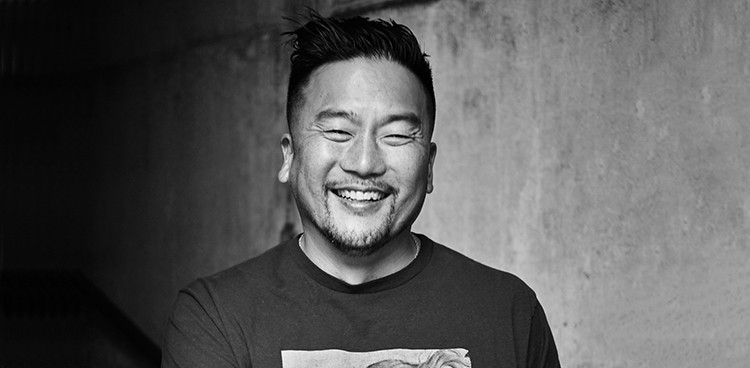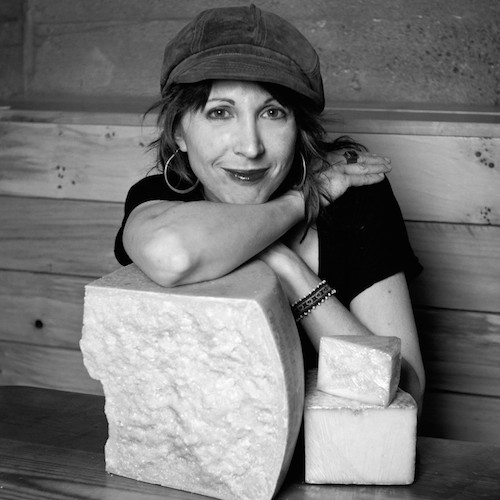
Roy Choi has always been intrigued by cheese. “I’m the guy who asks for lots of samples [at the counter],” he says, laughing. It’s no wonder, then, that curds often factor into the Korean-Mexican street food (see: cheddar-and-Jack-stuffed kimchi quesadillas) Choi serves from his award-winning Kogi BBQ truck. The genre-bending chef also helms a clutch of buzzy Los Angeles eateries and is a partner in Koreatown’s Line Hotel and the fledgling healthy fast-food venture Loco’l. He has a wildly popular blog and a best-selling memoir, L.A. Son: My Life, My City, My Food. And did we mention that the 2014 film Chef is loosely based on Choi’s life? Culture caught up with Choi to learn more about his passion projects, early influences, and why he’s so crazy about cheese.
ON STARTING OUT
Kogi is, first and foremost, a family, a co-op of people—it wasn’t all me. All of the original members were integral to its success and the resulting food truck movement. It’s like being in a band—everyone is of equal importance. We knew we were tapping into something, you could just see it in the eyes of people waiting in line.
ON LOCO’L
The idea was sparked by a 2013 speech I made at
MAD [star Danish chef René Redzepi’s annual nonprofit food symposium] in Copenhagen about hunger, and how traditional restaurants aren’t making food that’s accessible to a broader demographic. Chefs today are at a place in society where we have a voice and [start] think tanks, and people take us seriously. We have the clout to implement change when it comes to food security.
ON CHEESE
Everything I know I learned from Steve Jenkins’ book [
Cheese Primer]. I love creamy, complex cheeses, aged Italian goat cheeses. The first cheese that really made an impression on me was
Parmigiano Reggiano. I used to go to cheese shops in L.A. when I was younger and just hang out. I’m a curious soul.
ON EARLY CULINARY INFLUENCES
We didn’t have much money growing up. We’d make other sacrifices, but not when it came to finding and cooking great food. It’s a cornerstone of Korean culture: Food somehow trumps everything else.
ON OVERCOMING ADDICTION
At a certain point in my early 20s, I fell really far down [into substance abuse and gambling], and was close to the end of my rope. I was watching Emeril Lagasse on TV in ’95, and I had an epiphany. I knew I wanted to cook. From there, everything fell into place—it was a dramatic U-turn. I’m a very addictive person. It used to be drugs; now it’s cooking for and feeding people.
ON THE FUTURE OF FOOD TRUCKS
America is a nation built on small businesses, and trucks provide a sense of community, a way to enjoy the outdoors and make use of empty or abandoned lots. Parks are outdated in many ways, because of water waste and other factors. Food trucks are a way to create a new human and family dynamic, the way shopping malls did in the 1980s.
ON LOS ANGELES
I was raised here, failed here, spit out here. I left, came back, and was given another chance. L.A. allowed me to make a difference in my community and in the food industry, and become a revolutionary of sorts.
ON COOKING FOR THE COMMUNITY
I don’t like to speak in terms of food deserts or disadvantaged communities—these are my friends and family. I just try to create venues that can be enjoyed by everyone.
Feature Photo Credit: Audrey Ma
Laurel is a contributing editor at culture and a food and travel writer based in Austin, Texas. She also serves as editor at Edible Aspen.







